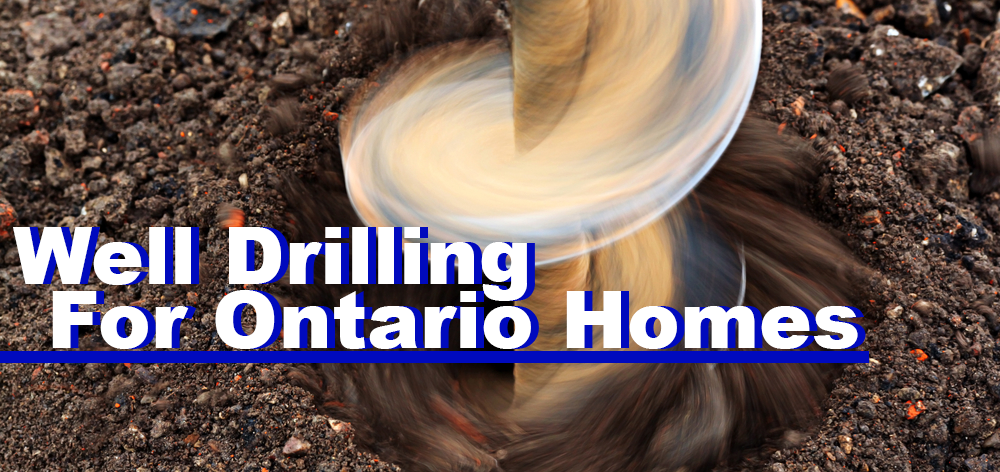Water Well Drilling in Ontario
Holmes Hydrofracturing specialize in water well drilling, an essential process that offers unparalleled advantages for residential properties, especially those untended by municipal networks. Many Canadian homeowners take fresh water for granted, but for many Ontarians clean and reliable drinking water is more of a challenge. Most people are looking for a trustable source of water for their Ontario home or cottage, requiring high professionalism and an eye for due diligence during construction.
If you are looking for a company with solutions for a drilled water well for your residential unit, Holmes Hydrofracturing is the leading choice for Southeastern Ontario.
All our work is done to meet the current Ministry of Environment standards.

The first step in the drilling process is to determine the most suitable location, and the procedure differs depending on the types of ground; rock, clay, sand, and boulders. This will affect the overall procedure and is crucial to know before beginning. The location can also affect minerals and metals found in the water. For this reason, during the drilling process we will repeatedly take soil samples to monitor the geology.
Sand and gravel wells require casing the entire depth of the well and a screen at the base of the well to permit water into the well pipe. The casing and screen prevent the well from filling in with sand and gravel. Rock is resilient to this problem, but may need to be fractured so the aquifer is connected to the well. This is where our specialized equipment is essential, and this is the most reliable method while not damaging the well
Sean just drilled a residential well for me and did a great job. Would totally recommend to everyone. He is very knowledgeable and took the time to make sure I got a solidly producing well.
Frequently Asked Questions
Why should I consider getting a water well drilled on my property?
There are several reasons why homeowners opt for water wells in Ontario. Firstly, having a water well provides independence from municipal water sources, allowing you to have your own private water supply. It can be a cost-effective long-term solution, as you won’t have to pay monthly water bills. Additionally, water wells often offer a reliable source of clean, fresh water, and can be beneficial in areas where municipal water systems are limited or of poor quality.
How deep should my water well be drilled?
The depth of a water well depends on various factors such as the geological composition of the area and the water table. In Ontario, well depths can range from 30 to 300 meters (100 to 1000 feet). It is crucial to consult with a professional well driller who can assess your property and provide accurate information regarding the optimal well depth for your specific location.
What permits or regulations are required for drilling a water well in Ontario?
In Ontario, drilling a water well requires obtaining permits and adhering to regulations. It is necessary to contact your local municipality or the Ontario Ministry of the Environment, Conservation and Parks to inquire about the specific permits and regulations applicable to your area. Consulting with a licensed well driller is also essential, as they have the expertise to guide you through the legal requirements.
What maintenance and testing is necessary for a water well?
Regular maintenance and testing are essential to ensure the continued functionality and safety of your water well. Well owners should schedule periodic inspections, pump maintenance, and water quality testing. Well water should be tested for bacteria, nitrates, and other contaminants as per the guidelines set by local health authorities. Your well driller or a water treatment professional can provide guidance on the frequency and specific tests required.
Are there any potential risks associated with water wells?
While water wells can provide a reliable source of water, there are potential risks to be aware of. These include the possibility of well contamination from nearby sources, such as septic systems or agricultural activities. Regular testing and proper well construction, including appropriate casing and sealing, can help mitigate these risks. It is crucial to work with a reputable well driller who adheres to industry standards and regulations.
